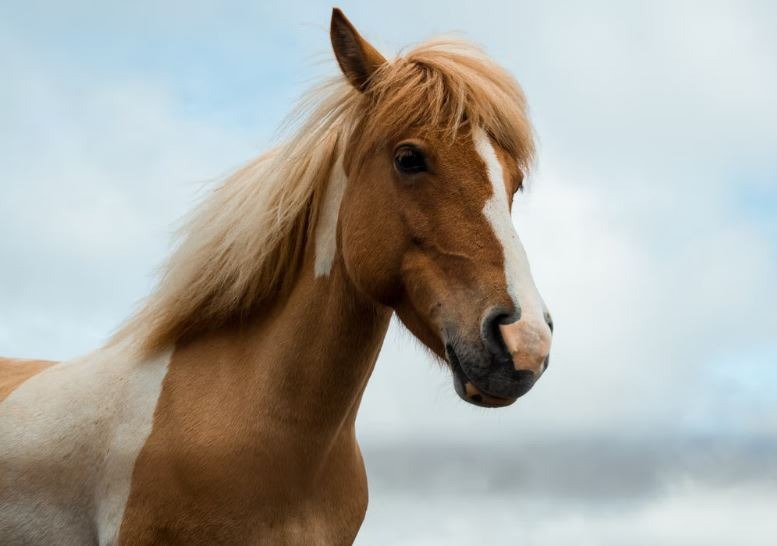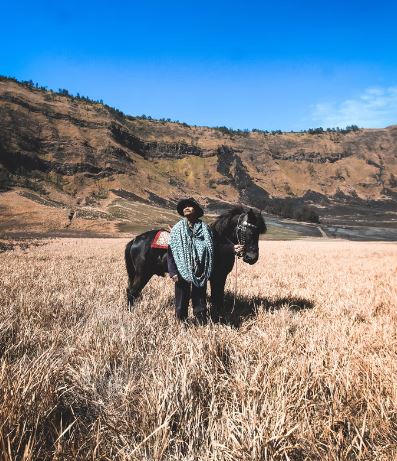Water is the most important nutrient for animals, so making sure they have plenty of clean water is critical. Water makes it possible for livestock to perform at their best and stay healthy. Dry matter consumption is proportional to water consumption, and the less an animal drinks, the less feed it consumes. Weight gain, milk production, and animal performance suffer as a result. The owner should know also what diet is best for the horses to keep them healthy. Water makes up 50 to 80 percent of an animal’s weight and is essential to all physiological processes.
During hot weather, there must be enough water for the entire herd because water requirements double when temperatures rise from 50° to 95° F. The quality of the water has an impact on water intake, herd health, and performance. To keep the water from becoming contaminated, water should be cleaned regularly. When water evaporates and becomes stagnant during a drought, the concentration of pollutants increases, lowering water quality. Using city or county water reduces the chances of this happening, but it is not always a viable option. Attempt to keep water free of microorganisms, suspended solids, and other pollutants. Reduce disease transmission by preventing animals from urinating and defecating in the water source. If you suspect that water is causing a problem or if a new source of water is developed, you should conduct a water analysis. Spring and well water quality should be consistent, but ponds and streams are typically at their lowest in late summer.
Water is essential for animal life to perform its essential functions. Water keeps animal life running, from transportation to lubrication to temperature regulation; in fact, water makes up the majority of animal bodies. Water is used as a medium in all chemical reactions in animals’ bodies.
1. The Control of Temperature
The body temperature of animals should stay within a narrow, specific range. Because of its high specific heat, water acts as a buffer against overheating. The amount of heat an object can absorb without increasing its temperature is measured in specific heat. Because its hydrogen-oxygen bonds dissolve only when exposed to extreme heat, water has high specific heat. To avoid dehydration, heated water seeps out through pores as sweat, which must be replenished.
2. The pH Control
The acidity or basicity of body compounds, or pH, determines whether acids or alkaline compounds take precedence. Acids and bases have an electrical charge, so they try to form a chemical bond with the opposite material to neutralize their net charge. Calcium and at least 18 other critical compounds, for example, make up bone matter. Excess acid will draw minerals from these sources in the absence of alkaline. When water is introduced into an animal’s system, its pH is brought closer to neutral, reducing the risk of harmful chemical reactions.
3. The Hydrolysis and the Production of Energy
ATP, the molecule formed when sugar is metabolized in the digestive tract and transferred to all cells, is broken down during hydrolysis. When two hydrogen atoms and one oxygen atom are added to an ATP (adenosine triphosphate) molecule, one phosphate atom is pulled away from the molecule, forming adenosine diphosphate. When this bond is broken, energy has released that powers the body.
4. The Digestion
The majority of the mucus lining that protects animal stomachs from acid is made up of water. Water bypasses digestion and flows directly into the intestine and stomach. Furthermore, saliva, which is used to break down food in the mouth, is mostly made up of water.
5. The Joint Lubrication
A protective layer of cartilage rests between bones in any animal skeleton to provide lubrication and prevent wear on the ends of the bones. Articular cartilage, or joint cartilage, is mostly made up of water with a matrix of collagens and non-collagenous proteins. The cartilage in a joint wears down without enough water, limiting the range of motion.
Water is Essential for Horses
1. How Much Water Do Water Horses Require?
Horses are far more likely to survive in the absence of food than they are in the absence of water. Most horses can go nearly a month without eating but only about a week without water. After just two days without water, extremely dangerous symptoms can develop. The amount of water required to keep a horse hydrated is primarily determined by its total body weight. On average, a horse consumes about 5-15 gallons of water per day. Other factors, such as external temperatures, the amount of exercise the horse receives, and the horse’s regular diet, may influence the total amount of water required. Broodmares also require more water because they need it to produce milk for their foals. Make sure your horse has access to water at all times and make sure to keep the horse’s water fresh. If you have an automatic waterer, make sure to check it every day to make sure it’s working properly.
2. Can a Horse Over-Drink Water?
It’s more common to worry that your horse isn’t getting enough water than that he’s getting too much. However, a horse may drink excessive amounts of water in certain circumstances. Boredom, stress, or confinement are often blamed, and the problem can be solved by letting the horse out more frequently. Excessive water consumption, when combined with excessive urination and other symptoms such as loss of appetite or weight, can indicate a horse’s health problem. Cushing’s disease, kidney failure, and other illnesses are known to cause this. If your horse is displaying these signs, you should seek the help of a veterinarian. Restricting your horse’s access to water should only be done under the guidance of a veterinarian, as this can exacerbate the problem and even lead to other dangerous illnesses.
3. The Value of Water and the Risks of Dehydration
For a horse, dehydration can cause a variety of problems. It is critical to comprehend the significance of water. Because water aids digestion in horses, a serious blockage can occur if they are dehydrated. Colic, which can occur in as little as 48 hours without water, is one of the most visible and devastating effects of water deprivation. A horse with insufficient water will become lethargic and perform poorly. Furthermore, dehydration can result in colic, kidney damage, weight loss, collapse, and death.
Dehydration can manifest itself in a variety of ways, so keeping an eye on your horse can help you avoid these problems. Your horse’s gums should be moist and pink when you examine them. Dehydration could also be indicated by sunken flanks or eyes. A horse’s breathing is consistent and regular. Dehydration can cause panting. The skin should also maintain a high level of elasticity. If you pinch the horse’s neck skin, it should snap back quickly. Dehydration may be the cause of the delayed return to its previous state.


